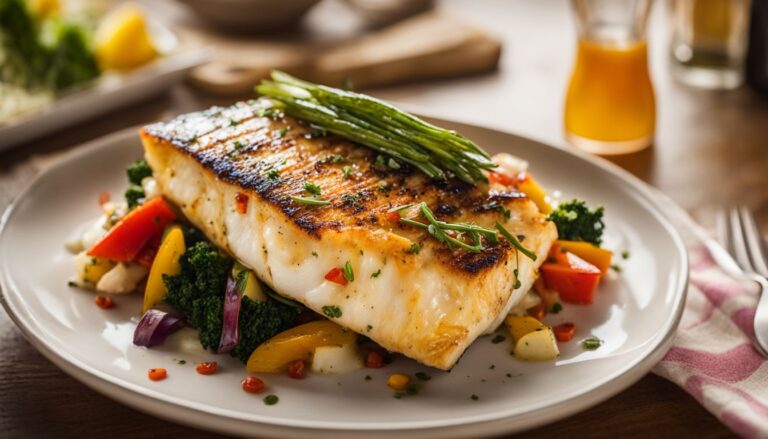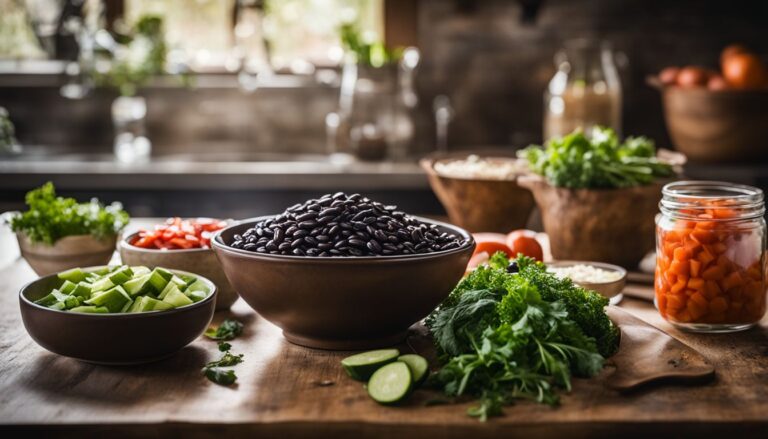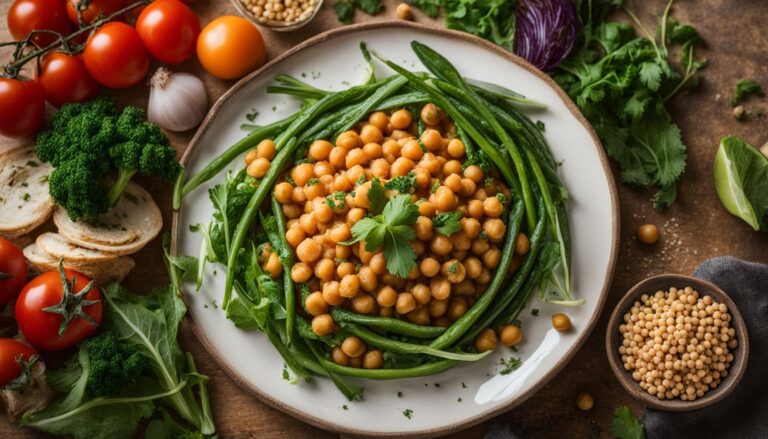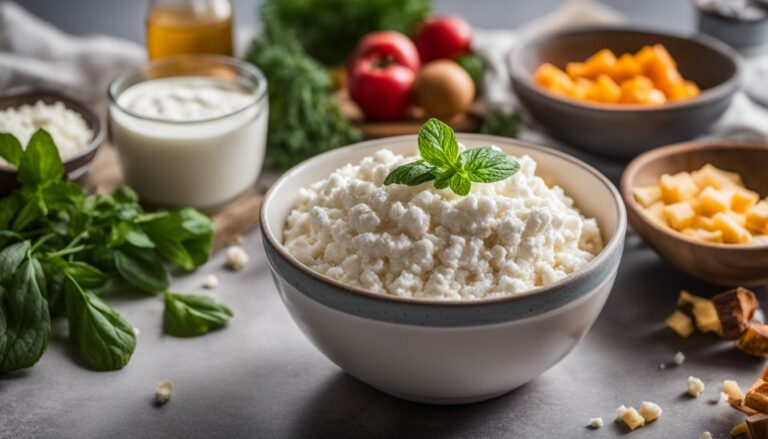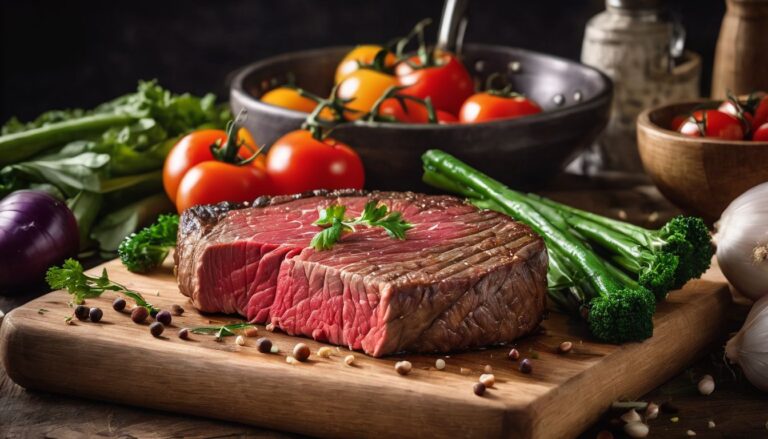Is Lobster a Good Source of Protein?Discover the Surprising Truth!

When it comes to choosing foods that pack a nutritional punch, lobster is a treasure trove often overlooked in favor of more traditional protein sources like chicken or beef. As a registered dietitian with extensive experience in the field of nutrition science, I’ve delved into the often underestimated benefits of incorporating shellfish such as lobster into one’s diet.
Not only does lobster offer an impressive profile of vitamins and minerals, but its high-quality protein content rivals that found in other lean meats.
Lobster’s reputation for being indulgent belies its status as a powerhouse nutrient provider. A medium-sized lobster can contribute over 55 grams of muscle-building protein while maintaining low calorie and fat levels—ideal attributes for those monitoring their dietary intake closely.
This combination makes it a stellar option for anyone from athletes to individuals seeking to improve their overall health through smarter food choices. Dive into this seafood delight; you might find your new favorite source of nutrition!
Key Takeaways
- Lobster, with its high protein content and low fat levels, is a nutritious option for anyone seeking to enhance their protein intake while maintaining a balanced diet.
- The rich array of essential vitamins and minerals in lobster supports overall wellness, including brain health, immune system function, thyroid health, mental well-being, and prevention of anemia.
- Athletes and bodybuilders can benefit from incorporating lobster into their diets due to its high protein content aiding in muscle building and recovery, omega-3 fatty acids supporting joint health, and essential minerals contributing to bone strength.
Lobster Nutrition Facts

Lobster is a good source of protein, low in fat, and rich in vitamins and minerals, making it a highly nutritious option.
High in protein
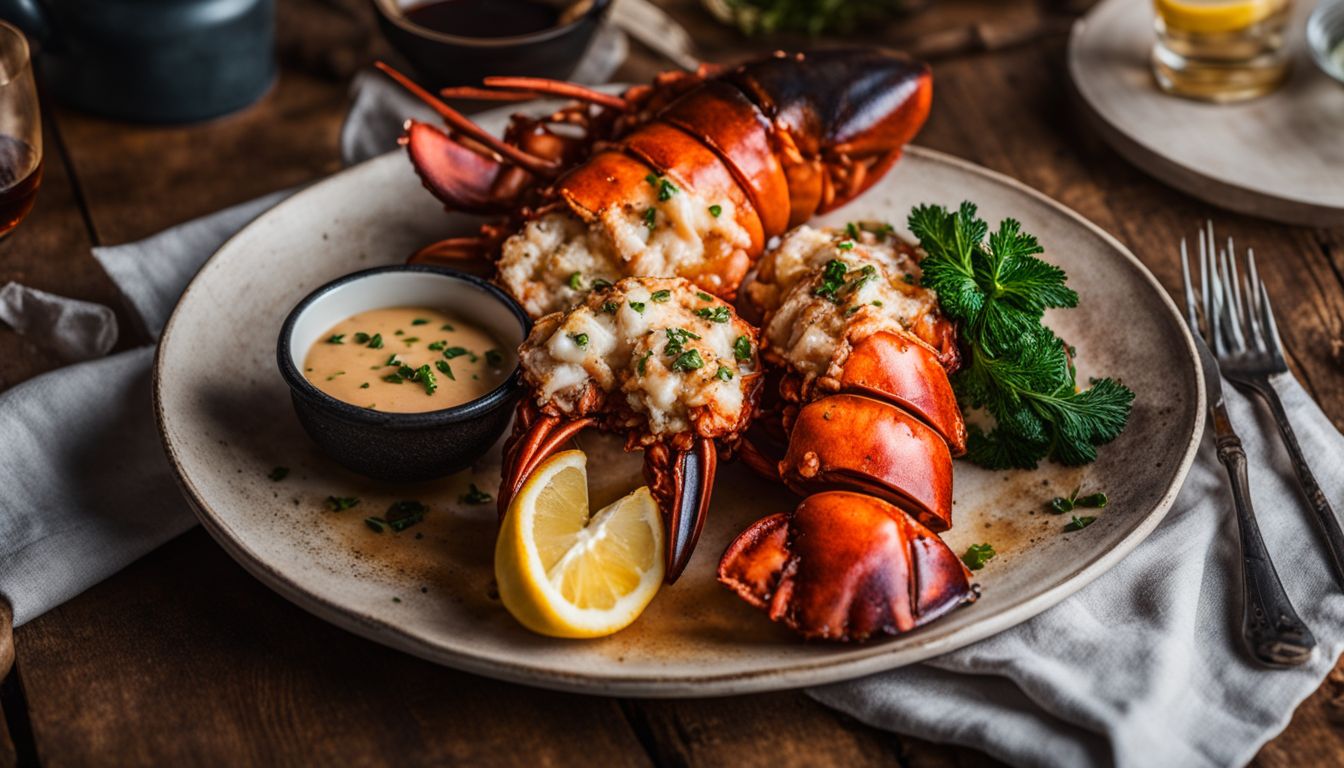
Packing a substantial punch of lean protein, lobster stands out as an excellent addition to any diet focused on fitness and health. With 27 grams of protein per 100-gram serving, this shellfish fuels your muscles without the unwanted calories, boasting just 128 calories in the same serving size.
Not only is lobster a source of protein that supports body tissue repair and growth, but it also contains essential amino acids necessary for overall wellness.
Featuring both taste and nutrition, lobster tail emerges as a powerhouse food item for those looking to enhance their protein intake. Each bite offers satisfying flavor while being incredibly low in fat and carbs—a dream come true for anyone aiming to maintain or lose weight.
Indeed, whether you’re recovering from a workout or simply seeking nutrient-rich foods, incorporating this shellfish into meals ensures you’ll get ample amounts of high-quality protein without compromising dietary goals.
Low in fat

Lobster stands out as a superb option for those looking to increase their protein intake without the added guilt of consuming too much fat. It’s not only delicious but also offers substantial nutritional value with minimal fat content.
With just 1.2 grams of fat per 100 grams and low levels of saturated fats, lobster is an excellent lean protein source. Many health-conscious individuals turn to this shellfish as a reliable alternative to higher-fat meats, recognizing its ability to fit seamlessly into a balanced diet.
Selecting lobster can be a smart move for anyone monitoring their caloric intake, thanks to its impressively low calorie count—only about 128 calories per serving—with zero carbs to boot.
Its naturally low-fat profile makes it conducive for weight management and maintaining overall wellness; indeed, lobster good source protein without piling on unwanted fats becomes apparent in its popularity among fitness enthusiasts and dietitians alike.
The next section delves into how this seafood is rich in vitamins and minerals, amplifying its status as a nutrient powerhouse.
Rich in vitamins and minerals

Transitioning from its low-fat profile, lobster packs a powerful nutritional punch with an array of essential vitamins and minerals that are crucial for maintaining good health. A serving delivers vital nutrients like zinc for immune support, vitamin B12 for nerve function, and selenium which plays a key role in metabolism and thyroid health.
Its copper content stands out, meeting nearly 200% of the daily requirement; this mineral helps your body form red blood cells and keeps your immune system strong.
Beyond being a prime source of protein, lobster is brimming with heart-protective omega-3 fatty acids along with magnesium to aid in muscle function and phosphorus that’s important for healthy bones and teeth.
With these impressive nutrient contributions, incorporating lobster into your diet supports overall wellness while providing delicious variety.
Health Benefits of Lobster

Lobster offers numerous health benefits, including support for brain health, a boosted immune system, aid in thyroid function, support for mental health, and prevention of anemia.
Supports brain health

Lobster is a valuable food for supporting brain health due to its high content of omega-3 fatty acids, essential for cognitive function and overall brain health. Omega-3 fatty acids have been linked to reduced risk of age-related cognitive decline and may help improve mood and decrease the risk of depression.
Additionally, lobster is rich in vitamin B12, known for promoting healthy nerve function and supporting the production of neurotransmitters in the brain.
The combination of omega-3 fatty acids and vitamin B12 found in lobster makes it an excellent choice for maintaining optimal brain health. These nutrients play crucial roles in supporting mental acuity, memory retention, and overall cognitive well-being.
Boosts immune system

Lobster consumption can aid in boosting the immune system due to its richness in essential nutrients such as copper and selenium. These minerals play a crucial role in supporting the body’s immune function, helping to defend against illnesses and infections.
Additionally, lobster is a good source of protein, which is vital for building and repairing tissues within the body, contributing to overall immune system health.
Furthermore, the omega-3 fatty acids found in lobster meat have anti-inflammatory properties that can help regulate immune responses and promote a healthy immune system. With an array of beneficial vitamins and minerals combined with its high protein content, lobster serves as an excellent addition to a balanced diet aimed at strengthening immunity and maintaining optimal health.
Aids thyroid function

To add to its impressive list of health benefits, lobster also aids in thyroid function. This is due to the significant presence of selenium, a mineral crucial for proper thyroid hormone metabolism.
A 100g serving of lobster provides around 190% of the daily value for selenium, making it an excellent addition to support overall thyroid health and function.
With high levels of selenium, incorporating lobster into a balanced diet can contribute significantly to maintaining optimal thyroid activity and promoting overall well-being.
Supports mental health

With its rich nutrient profile, lobster can support mental health in various ways. The omega-3 fatty acids found in lobster meat are crucial for brain function and have been linked to reducing the risk of depression and anxiety.
Additionally, the high protein content in lobster supports the production of neurotransmitters, which play a vital role in regulating mood and overall mental well-being. The presence of essential vitamins and minerals such as vitamin B12, copper, selenium, zinc, magnesium further contributes to maintaining optimal cognitive function and emotional balance.
Furthermore, lobsters’ low calorie and low-fat nature make it an ideal food choice for individuals aiming to maintain a healthy weight, which is positively correlated with improved mental health outcomes.
Can prevent anemia

Supporting overall health, lobster is a valuable dietary addition for preventing anemia. With its rich content of vitamin B12 and iron, it aids in the production of red blood cells and helps prevent deficiencies that can lead to anemia.
The high levels of these essential nutrients in lobster contribute significantly to maintaining healthy blood and supporting optimal oxygen transport throughout the body.
This nutrient-dense seafood provides crucial components necessary for preventing anemia due to its high vitamin B12 content. Additionally, the presence of iron further enhances its role in safeguarding against this condition.
How Lobster Can Benefit Sports Training and Bodybuilding

Lobster is an excellent choice for athletes and bodybuilders, as its high protein content supports muscle building and recovery. Plus, the omega-3 fatty acids in lobster contribute to joint health, while essential minerals help maintain strong bones.
With its low fat and calorie content, lobster can also assist in weight management for those pursuing athletic goals.
High protein content aids in muscle building and recovery

Lobster’s high protein content makes it an excellent choice for enhancing muscle building and promoting speedy recovery post-exercise. With 16 grams of protein per serving, lobster provides a significant boost to the body’s repair and growth processes after strenuous physical activity.
Additionally, its low fat and calorie content makes it an ideal option for weight management while supporting the development of lean muscle mass. These nutritional attributes position lobster as a valuable addition to the diets of individuals engaged in sports training and bodybuilding.
Moreover, the omega-3 fatty acids found in lobster meat not only aid in joint health but also contribute to overall well-being by reducing inflammation. Furthermore, the essential minerals present strengthen bones, making lobster an all-round beneficial food option for individuals aiming to optimize their physical performance and recovery.
Rich in omega-3 fatty acids for joint health

Lobster is a rich source of omega-3 fatty acids, known for their anti-inflammatory properties that support joint health. Omega-3s are crucial for reducing stiffness and promoting flexibility in the joints, making lobster a beneficial choice for those looking to maintain healthy and mobile joints.
Additionally, the omega-3 fatty acids found in lobster may aid in lowering inflammation associated with conditions like arthritis, providing further support for overall joint well-being.
Furthermore, incorporating omega-3s from sources like lobster into one’s diet can contribute to improved joint function and alleviation of discomfort caused by inflammation. The inclusion of these essential fatty acids supports an active lifestyle by helping individuals maintain optimum mobility and comfort throughout physical activities or daily movements.
Provides essential minerals for bone strength

Rich in omega-3 fatty acids for joint health, lobster also offers essential minerals crucial for bone strength. The high levels of phosphorus and magnesium in lobster contribute to bone mineralization and maintenance.
Phosphorus aids in the formation and repair of bones, while magnesium supports bone density and overall skeletal health. These minerals work synergistically with protein to promote healthy bone development and reduce the risk of osteoporosis.
Additionally, the presence of vitamin E in lobster meat assists in protecting bones from oxidative damage, further enhancing their strength and resilience.
Low in fat and calories for weight management
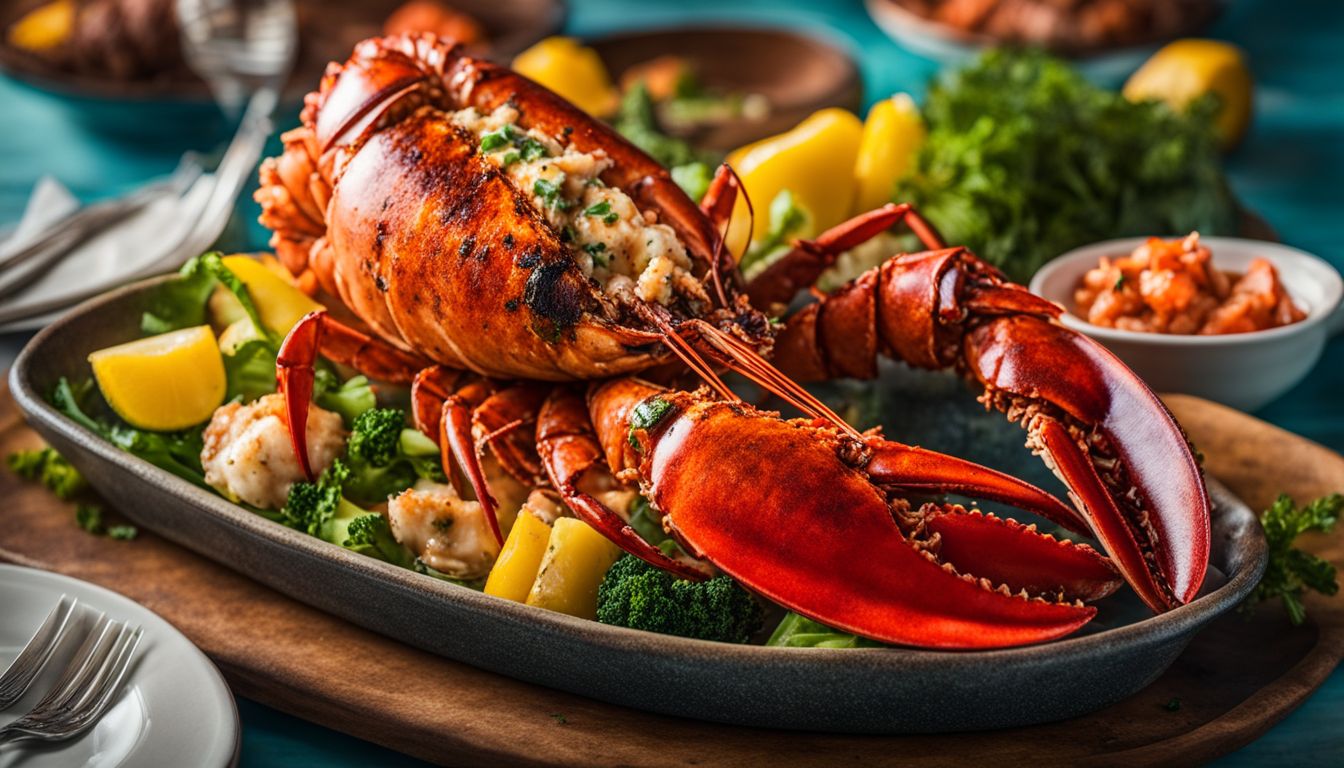
Protein-rich and nutrient-dense, lobster is a fantastic option for those aiming to maintain a healthy weight. With minimal saturated fat and less than 100 calories per serving, it’s an excellent addition to a well-rounded diet.
An average-sized lobster tail contains just 96 calories and offers substantial protein content at 19 grams. This makes it a filling and satisfying choice for individuals looking to manage their weight without compromising on nutritional value.
In addition, the omega-3 fatty acids present in lobster meat further promote joint health while aiding in overall weight management.
Tips for Enjoying Lobster in a Healthy Way

When enjoying lobster in a healthy way, opt for grilled or boiled preparations and avoid heavy sauces and butter. It’s also important to keep portion sizes in check and consider any potential allergens or health concerns.
Avoid heavy sauces and butter
Opt for grilled or boiled lobster to savor its natural flavor without added calories and saturated fats. Grilling or boiling keeps the dish light and healthy, highlighting the rich taste of lobster while preserving its nutritional value.
By avoiding heavy sauces and butter, you can relish this lean protein food in a way that complements your health goals.
Opt for grilled or boiled preparations
Grilled or boiled preparations are ideal for enjoying the natural flavors of lobster without adding extra calories from heavy sauces and butter. Grilling or boiling also helps retain the essential vitamins and minerals present in lobster, making it a nutritious and wholesome meal choice.
These cooking methods preserve the integrity of the high protein content, omega-3 fatty acids, and vital minerals like copper and selenium found in this delicious shellfish.
For those looking to enhance their diet with lean protein while keeping an eye on overall calorie intake, grilled or boiled lobster presents itself as an excellent option. This way of preparing lobster ensures that you derive maximum nutritional benefits while savoring its delectable taste.
Keep portion sizes in check
After opting for grilled or boiled preparations, it’s essential to keep portion sizes in check when enjoying lobster. While lobster is a nutritious and protein-rich option, it’s crucial not to overindulge due to its relatively high cholesterol content.
A reasonable serving size of 3-5 ounces ensures that you benefit from the protein, omega-3 fatty acids, and essential nutrients without consuming excessive calories or cholesterol.
Monitoring portion sizes also helps maintain a balanced dietary intake, preventing overconsumption of proteins and fats. By being mindful of portions, you can savor the delicious taste of lobster while promoting overall health and wellness.
Consider potential allergens and health concerns
Lobster is generally safe to consume, but it’s crucial to be mindful of potential allergens and health concerns. Individuals with shellfish allergies should avoid lobster, as it can trigger severe allergic reactions.
It’s also important to note that lobster can be high in cholesterol, so moderation is key for those watching their intake. Additionally, individuals on blood-thinning medications should consult with a healthcare professional before increasing their consumption of lobster due to its rich content of omega-3 fatty acids and vitamin K.
These considerations ensure that individuals can enjoy the nutritional benefits of lobster while taking into account any potential risks associated with its consumption. Next up we’ll examine practical tips for enjoying lobster in a healthy way.
Conclusion

In conclusion, lobster is a highly nutritious and protein-rich food option that offers numerous health benefits. Its high protein content supports muscle building and recovery, while omega-3 fatty acids promote joint health.
Incorporating lobster into a healthy diet can provide essential vitamins and minerals for overall well-being. By opting for healthier cooking methods and being mindful of portion sizes, individuals can enjoy the nutritional advantages of lobster without compromising their dietary goals.
Embracing lobster as part of a balanced diet offers practical ways to enhance one’s nutrition and well-being.
FAQs
1. Is lobster a good source of protein?
Yes, lobster is an excellent source of high-quality protein and provides essential amino acids necessary for muscle function and overall health.
2. What are the nutritional benefits of eating lobster?
Eating lobster can provide essential nutrients such as vitamins B12, zinc, phosphorus, and selenium. It is also low in fat and carbohydrates.
3. How does lobster compare to other protein-rich foods in terms of nutrition?
Lobster offers a lean source of protein with fewer calories compared to some other protein-rich foods like beef or pork. It’s also rich in omega-3 fatty acids.
4. Are there any potential allergens in lobster that I should be aware of?
Lobster is known to be a common food allergen for some individuals. If you have known shellfish allergies, it’s important to avoid consuming lobster.
5. Can including lobster in my diet contribute to a balanced and nutritious meal plan?
Incorporating moderate portions of lobster into your diet can contribute to a well-rounded meal plan by providing essential nutrients like protein, vitamins, and minerals without excessive saturated fat content often found in other animal proteins.
Sources referenced in this article
- https://www.medicalnewstoday.com/articles/303332
- https://www.healthline.com/nutrition/lobster-nutrition
- https://www.eatingwell.com/article/7913555/is-lobster-healthy/
- https://lobsteranywhere.com/seafood-savvy/lobster-nutrition-facts/
- https://www.verywellfit.com/lobster-nutrition-facts-4134901
- https://greatist.com/eat/lobster-nutrition

Author
Years ago, the spark of my life’s passion ignited in my mind the moment I stepped into the local gym for the first time. The inaugural bead of perspiration, the initial endeavor, the very first surge of endorphins, and a sense of pride that washed over me post-workout marked the beginning of my deep-seated interest in strength sports, fitness, and sports nutrition. This very curiosity blossomed rapidly into a profound fascination, propelling me to earn a Master’s degree in Physical Education from the Academy of Physical Education in Krakow, followed by a Sports Manager diploma from the Jagiellonian University. My journey of growth led me to gain more specialized qualifications, such as being a certified personal trainer with a focus on sports dietetics, a lifeguard, and an instructor for wellness and corrective gymnastics. Theoretical knowledge paired seamlessly with practical experience, reinforcing my belief that the transformation of individuals under my guidance was also a reflection of my personal growth. This belief holds true even today. Each day, I strive to push the boundaries and explore new realms. These realms gently elevate me to greater heights. The unique combination of passion for my field and the continuous quest for growth fuels my drive to break new ground.




